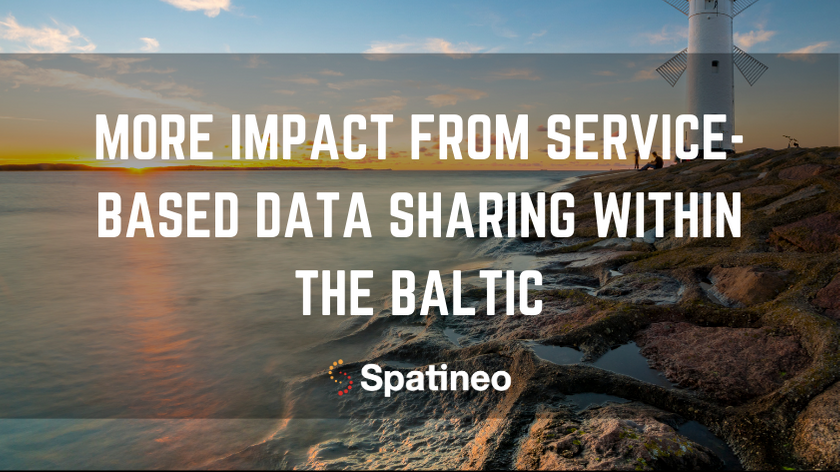
More impact from service-based data sharing within the Baltic
Spatineo wants to actively contribute to protection of the marine environment of the Baltic Sea. Therefore, we are very happy to be a partner in the Baltic Data Flows project that is led by the Baltic Marine Environment Protection Commission (HELCOM). The project enhances the sharing and harmonisation of data on marine environment originating from existing sea monitoring programmes and will move towards service-based data sharing. In particular, the project will share open data sets made available by HELCOM with a wider community such as European open data ecosystem, researchers, NGOs and private sector which would benefit from the availability of harmonized environmental data.
Spatineo’s main tasks in the project are related to ensuring interoperability of existing metadata catalogues to European Data Portal and assessing the impact of existing and new geospatial data sets related to the marine environment of the Baltic Sea. HELCOM is using our Saas-tool Spatineo Monitor to assess their impact and measure their service usage.
European Data Portal is one of the key portals to find Public Sector Information available on public data portals across European countries. Spatineo will harvest both HELCOM’s and ICES’s metadata catalogues to European Data Portal ensuring quality and reliability of the harvesting method.
HELCOM collects monitoring data and data related to the Baltic Sea into various different thematic databases such as biodiversity, pollution load data, MORS environmental (levels of radioactivity monitored in water, sediment and biota), and Coastal fish core indicator databases. These data sets are published in HELCOM Map and Data Service. In order to ensure that data services meet the needs of data users Spatineo takes part in carrying out an end user survey to get detailed insight on the purpose for which data is used.
Spatineo is leading the description and implementation of KPIs to assess the impact of regionally harmonized data products resulting from the project and the existing data products as well. Spatineo Monitor service is used as a key source for the impact assessment. The service monitors geospatial web services and analyses usage of geospatial data: how much geospatial data sets are used, from which areas and which are the user groups . These analyses are completed with results from the end user survey and other potential sources for a comprehensive impact assessment.
The project is funded by the European Commission’s Connecting Europe Facility (CEF) Telecom Work Programme CEF-TC-2019-2: Public Open Data. Other consortium members are Latvian Institute of Aquatic Ecology (LHEI), Finnish Environment Institute (SYKE), Swedish Meteorological and Hydrological Institute (SMHI), International Council for the Exploration of the Sea (ICES) and Stockholm University (SU). The project started in October 2020 and ends by September 2023.
